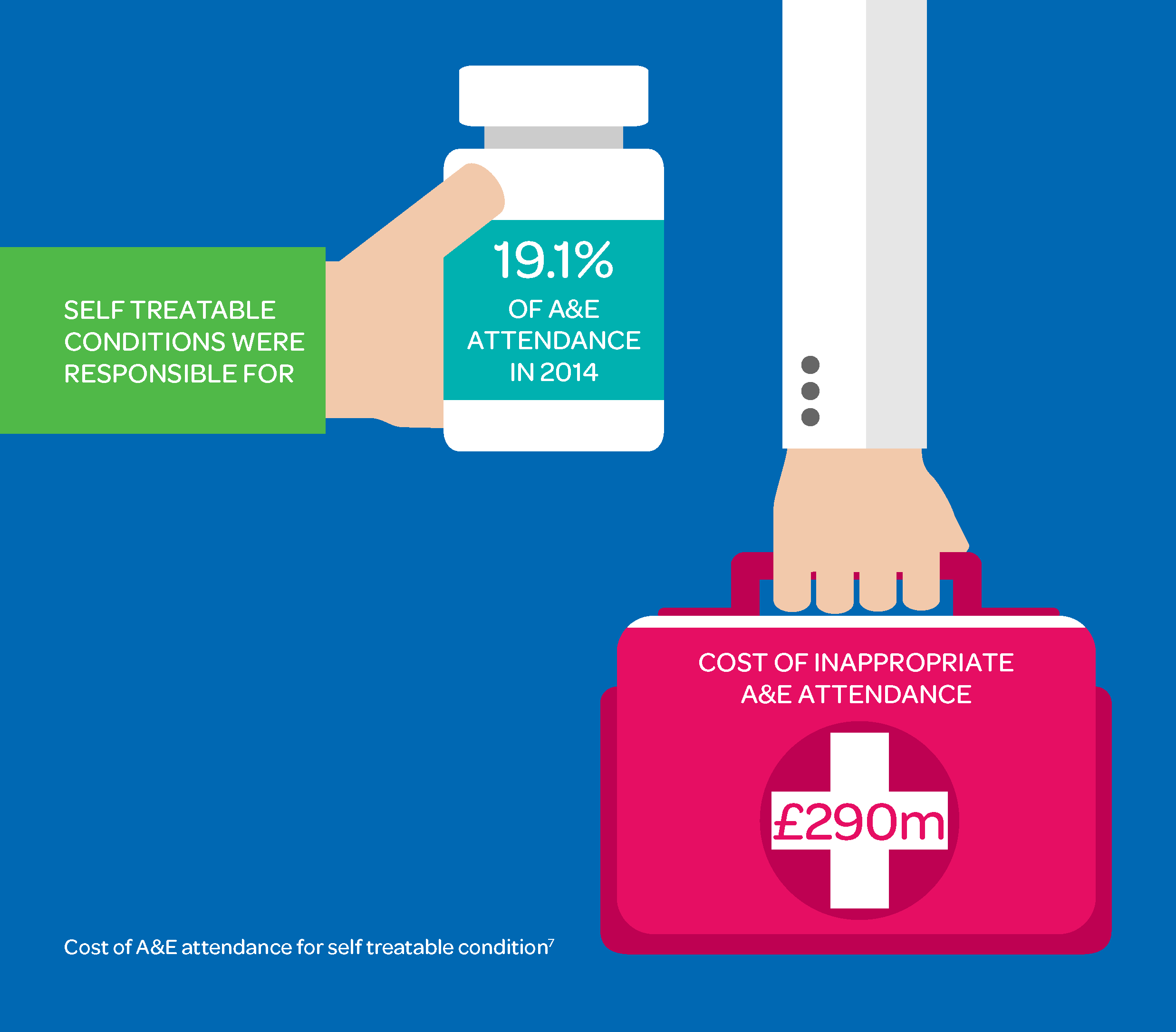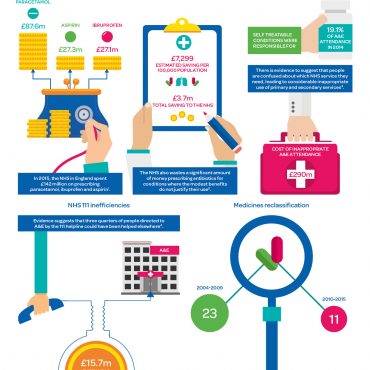

The health service is currently facing unprecedented challenges, fuelled by a growing and ageing population and exacerbated by increasing financial pressures.
With the NHS required to find £22 billion of efficiency savings by 2020, it is critical that everything possible is done to limit pressures on services, reduce wasteful practices and shift the entire system towards a greater focus on preventative care.
However, there are still areas of NHS care where examples of egregious waste exist. These include:
- Unnecessary prescribing practices
- A lack of clarity and understanding from people over which service they require, resulting in unnecessary pressures on A&E and GP services
- Unnecessary regulatory burdens due to restrictive interpretations of medicines regulation and inconsistency of enforcement
These examples demonstrate the need for a renewed effort to ensure the appropriate use of NHS services. The NHS cannot afford to waste money and resources. An important consideration for the Government’s community pharmacy reforms is how to enhance community pharmacy’s role in supporting healthy living, preventative health and self care for minor aliments and
long-term conditions, as part of a more integrated local care model.
Community pharmacy reforms present a clear opportunity for a renewed, concerted effort to encourage more people to self care. Crucially, equipping people with the knowledge to self care and to self treat commonly occurring conditions could help to reduce areas of waste, freeing up valuable resources to either help the NHS to meet its efficiency target, or to reallocate finances elsewhere.
For more information contact info@pagb.co.uk

